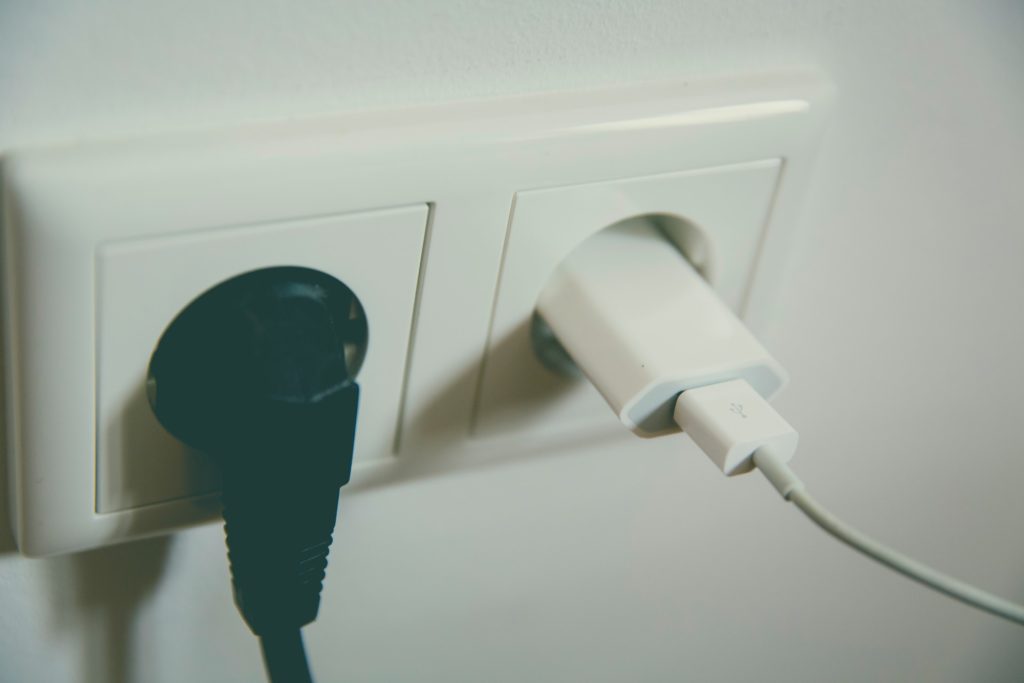Old electrical outlets can present a safety hazard in the home. Replacing them can achieve additional cost savings on your power bill, which is another reason to consider an upgrade. How do you know if this is necessary or if it can wait? We provide you with the information to know when an upgrade is needed and tips on selecting the best electrician for the job.
How Electrical Outlets Work
A branch circuit connects the main electricity supply with your power outlets and comes with two to three sockets. At the top, you get the hot socket which is joined to a black wire which transfers energy to the outlet. Next to the hot socket is the neutral socket with a white wire. Any surplus charge is returned by the neutral socket to the panel and closes the circuit. The bottom socket is the ground socket. Its function is to prevent a short circuit.
When you connect your toaster or other appliance, it becomes part of the branch circuit. The hot wire enters the appliance through the electrical cord, and this provides the toaster with electricity. Excess voltage is drained off by the neutral socket.
What Causes Electrical Outlets to Wear Out?
Time and normal wear and tear are responsible for the degeneration of electrical outlets. Friction between metal terminals and metal plugs is caused every time you plug in an appliance and later unplug it. This also causes connections between the terminal screws and the wires to shift apart. This gap, if large enough, can prevent the voltage from arcing on its course from wire to terminal, ending with connecting to the appliance.
Heat can accumulate in the electrical outlet, causing it to warp and become distorted. The heat can even start a fire with a single spark. Additionally, the parts inside the outlet can become damaged. All of this is caused by too much electrical resistance in the outlet. Electrical resistance also hampers the flow of electricity through the branch circuit. This results in insufficient voltage reaching the appliance and the ability of the outlet to cope with the required voltage decreases. When there is excessive voltage, this could result in the circuit breakers tripping.
To Wait or to Upgrade?
There are four important reasons for deciding to upgrade your electrical outlets. These instances consist of faulty or damaged outlets, insufficiency for required voltage, outlets that aren’t grounded, and to replace with a GFCI outlet. We look at each of these in more detail below.
Faulty Or Damaged Outlets
If you have noticed sparking or your appliances keep tripping, you should not wait to upgrade your appliances. These symptoms point to the deterioration of your outlets and pose a risk of fire. Newer models of electrical outlets have been designed to last much longer than the old ones you have in place, so you won’t need to do it again in a hurry.

Outlets That Cannot Handle Voltage Requirements
You may have been fine with the amount of voltage your electrical outlets provided initially. However, several years down the road, you are likely to have acquired several new appliances and require more voltage to run your tumble dryer, washing machine, kettle, and heater simultaneously. Pushing your electrical outlets beyond their capacity will simply increase the rate at which their functionality declines. Age also aggravates the wearing down of electrical outlets.
Outlets That Aren’t Grounded
If you only have two, instead of three, sockets for each electrical outlet, then you have a problem. It means that your outlets are not grounded. According to the National Electrical Code for the UK, all electrical outlets must include a ground socket in any new building construction, home, or business. While this doesn’t apply to existing buildings, the message is clear that these no longer meet the required standards for the industry.
You Don’t Have Ground Fault Circuit Interrupter (GFCI) Outlets
A Ground Fault Circuit Interrupter (GFCI) outlet is utilised specifically in bathrooms and kitchens. These spaces have water that needs to be kept away from electricity. Should an appliance come into contact with any water, the GFCI has sensors to detect this and immediately halts the electrical connection to the hot wire. This prevents the user from getting a nasty electrical shock or being electrocuted.
Choosing an Electrician
Replacing your electrical outlets requires hiring an electrician with modern electrical supplies to undertake the task. It can be hard to know which company to go with, so we provide you with the key criteria to help you choose a trustworthy electrical business.
Firstly, ensure that the electrician is licensed. Check that its date is current and that their training covers the kind of work required. There should be no restrictions on their license, and they should also be currently insured. Secondly, a minimum of three quotes will ensure that you are not being ripped off by an unscrupulous artisan. Next, ask if the company can provide you with a 12-month warranty. If they are unable to do so, they may not have a minimum of three years in practice and could be underqualified for the job. Lastly, confirm these criteria even if the company has been personally recommended to you.
It is better to be safe than sorry when it comes to electricity. We have harnessed its benefits but you must always be aware of the risks.






